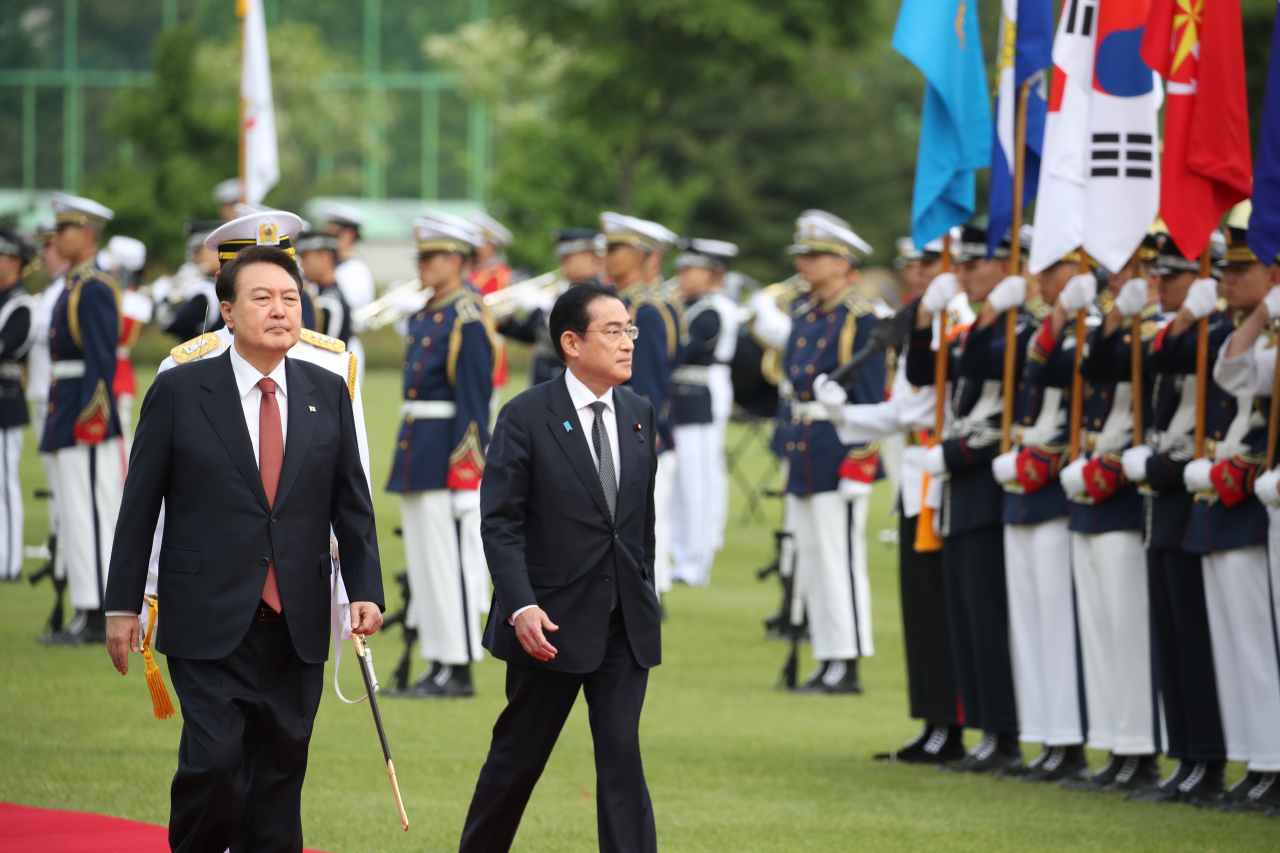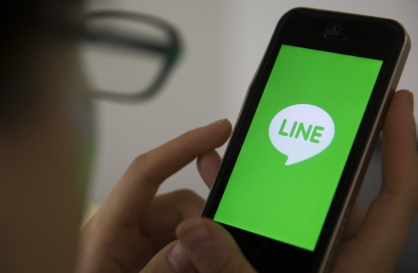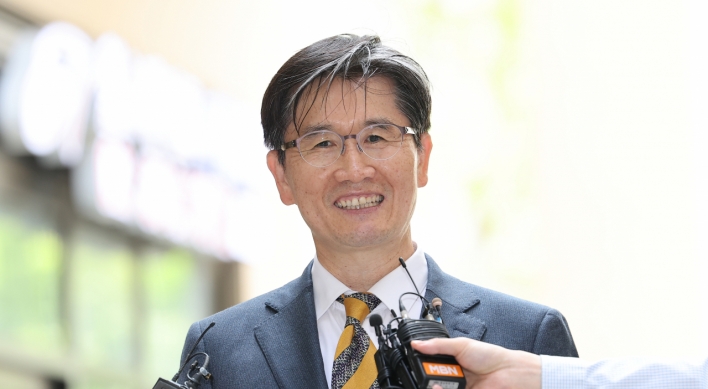
The leaders of South Korea and Japan on Sunday began their second summit this year in Seoul to fully restore the two countries' "shuttle diplomacy," aiming to improve strained ties in the areas of regional security, economic partnership and cultural exchanges.
Japanese Prime Minister Fumio Kishida arrived in Seoul for a two-day working visit, less than two months after the March summit in Tokyo. He was the first Japanese leader to make a bilateral visit to Korea in 12 years after former Prime Minister Yoshihiko Noda, amid warming bilateral ties after Yoon's visit to Tokyo, also the first by a South Korean leader in 12 years.
The summit's major agenda was to include security, high-tech industries, science and technology, as well as youth and cultural cooperation. The two were expected to discuss contentious matters such as the discharge of contaminated water from the Fukushima nuclear power plant and a trilateral security cooperation based on the Washington Declaration adopted two weeks ago at a summit between the leaders of South Korea and the US. At the April 26 summit in Washington, President Yoon and US President Joe Biden agreed to strengthen extended deterrence through the declaration, which includes the launch of a nuclear consultation group that ensures South Korea's participation in the process of providing extended deterrence by the US.
The Japanese premier kicked off his Seoul visit by heading to Seoul National Cemetery first to pay his respects to Korea's fallen independence fighters and war veterans.
Kishida, along with his wife, first lady Yuko Kishida, Deputy Chief Cabinet Secretary Seiji Kihara, Japanese Ambassador to Korea Koichi Aiboshi and Korean Ambassador to Japan Yun Duk-min paid their respects to Korean martyrs in a solemn atmosphere.
On his trip to the national cemetery where independence activists who fought against the Japanese colonization are buried, a Japanese government official said it is a part of customary engagements for a Japanese leader when visiting a foreign country, playing down its significance.
"It's a natural thing for the head of a country to visit a (country's) memorial place ... and express respect for the lives of many people related to the country's history," the official was quoted as saying by a Tokyo correspondent from Yonhap News Agency.
"Prime Minister Kishida also wants to pay his respects to the people who are a part of Korean history," the official added.
Kishida then met with members of the Seoul Japan Club, a Japanese business community in Seoul, before he headed to the presidential office for the summit later in the afternoon.
Before leaving Tokyo, Kishida told reporters that his trip to Seoul is aimed at having an honest dialogue with Yoon and to strengthen communication between the two countries in fields such as finance and defense, according to Kyodo News.
He also suggested that he would have an honest discussion with Yoon on the issue of victims of forced labor during Japanese colonial rule. Despite lingering public hostility over the thorny issue of Korean victims of Japan's wartime forced labor, Yoon offered an olive branch to normalize ties with Tokyo in March by proposing to compensate Korean victims through a Seoul-backed foundation, not by Japanese firms held liable by the top court's order. In return, Seoul had expected the Japanese leader to reaffirm Japanese governments' past positions to issue an apology for its 1910-45 colonial rule of the Korean Peninsula or go beyond that.
Kishida's reciprocal visit to Korea came ahead of a trilateral summit expected to take place among leaders of the US, Japan and South Korea, on the sidelines of the Group of Seven summit in Hiroshima this month.
The three-way summit is widely expected to forge strengthened cooperation from the three countries to deter North Korean evolving threats as well as other challenges in the Indo-Pacific region.
On Monday, Kishida is scheduled to meet with members of the Japan-Korea Parliamentarians' Union and Korean businesspeople before leaving for Tokyo.










![[Weekender] How DDP emerged as an icon of Seoul](http://res.heraldm.com/phpwas/restmb_idxmake.php?idx=644&simg=/content/image/2024/04/25/20240425050915_0.jpg&u=)

![[Today’s K-pop] NewJeans' single teasers release amid intrigue](http://res.heraldm.com/phpwas/restmb_idxmake.php?idx=644&simg=/content/image/2024/04/26/20240426050575_0.jpg&u=)






![[Herald Interview] Mistakes turn into blessings in street performance, director says](http://res.heraldm.com/phpwas/restmb_idxmake.php?idx=652&simg=/content/image/2024/04/28/20240428050150_0.jpg&u=)
